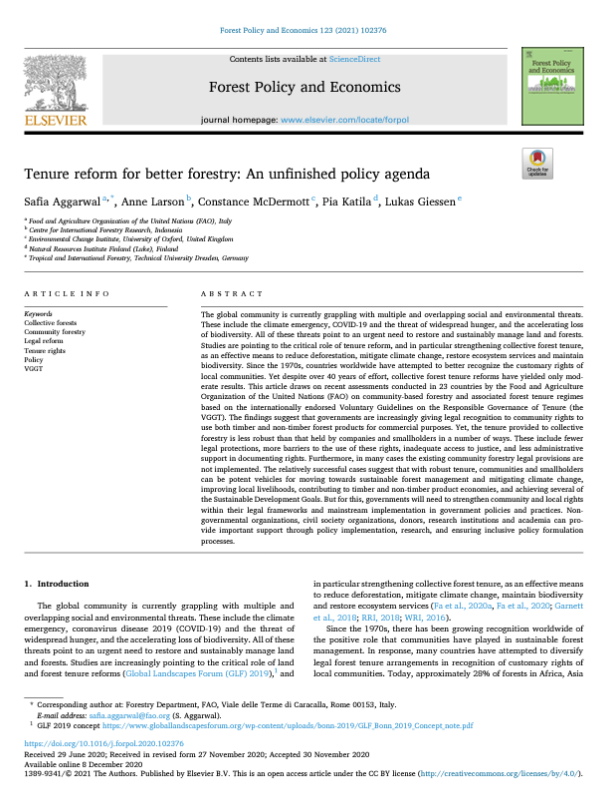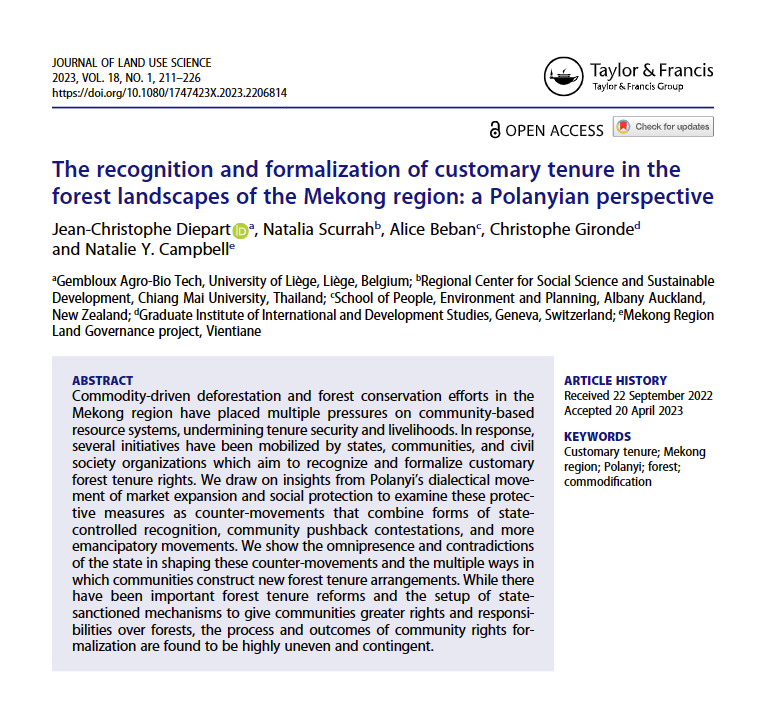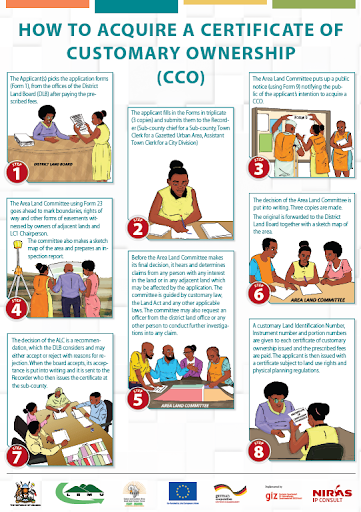
Topics and Regions
Landpages.co.ke is a medium of passing this message.
Details
Public Email
Location
Contributions
Displaying 181 - 190 of 740Tenure reform for better forestry: An unfinished policy agenda
The global community is currently grappling with multiple and overlapping social and environmental threats. These include the climate emergency, COVID-19 and the threat of widespread hunger, and the accelerating loss of biodiversity. All of these threats point to an urgent need to restore and sustainably manage land and forests.
What is forest tenure (in)security? Insights from participatory perspective analysis
Over the past two decades, growing recognition of forest-based Indigenous peoples and local communities (IPs and LCs) sparked forest tenure reforms to formalize IP and LC rights to forests and forest lands through a variety of mechanisms. Nevertheless, tenure security, an intended objective of such reforms, has received less attention, despite being integral to the life and livelihoods of IPs and LCs and important for forests.
Land expropriation – The hidden danger of climate change response in Mozambique
This paper sets out why land expropriation is a hidden danger of the response to climate change; a danger that is not adequately captured in legislation and that risks disproportionately affecting the poor. Measures to mitigate the risks and impacts of climate change are often dependent on states’ access to land.
The recognition and formalization of customary tenure in the forest landscapes of the Mekong region
Commodity-driven deforestation and forest conservation efforts in the Mekong region have placed multiple pressures on community-based resource systems, undermining tenure security and livelihoods. In response, several initiatives have been mobilized by states, communities, and civil society organizations which aim to recognize and formalize customary forest tenure rights.
The global forest tenure transition: Background, substance, and prospects
The global forest tenure transition: Background, substance, and prospects
Coordinating forest tenure reform: Objectives, resources and relations in
As forest tenure reform is mainstreamed around the world, outcomes are increasingly determined by the institutions that are responsible for administering its operationalisation and translating policy into implementation. This global study examines state institutional contexts of tenure reform in Kenya, Uganda, Nepal, Indonesia, and Peru. Interviews were administered in 2016–2017 using a fixed questionnaire applied across all countries involving 26–32 respondents from state implementers of forest tenure reform in each country for a total of 145 respondents.
Formalizing community forest tenure rights: A theory of change and conditions for success
The formalization of community forest tenure rights is expected to promote sustainable community forest management, and is seen as a way to combine objectives related to environmental conservation, livelihood improvement, and local self-determination. However, the formalization of forest tenure rights by itself, does not automatically result in the intended impacts. There is a need to better understand the conditions under which communities are able to use these rights to achieve positive outcomes across multiple dimensions.
The pressure to capitalise on nature
A Series of Posters for Communities Related to the Topics of the Manuals
-
How to acquire a Certificate of Customary Ownership (CCO) (2022)
-
How to carry out a subdivision on Mailo Land (2022)
Respecting Free, Prior and Informed Consent in Acquisition of Land for Investments in Uganda
This Fact Sheet aims to provide guidance on Free, Prior and Informed Consent (FPIC) and its application in Uganda in the context of Responsible Land-Based Investments.










